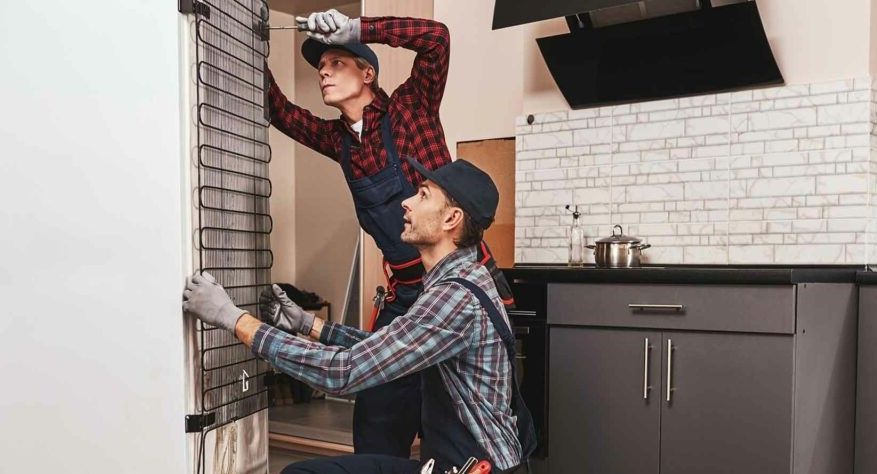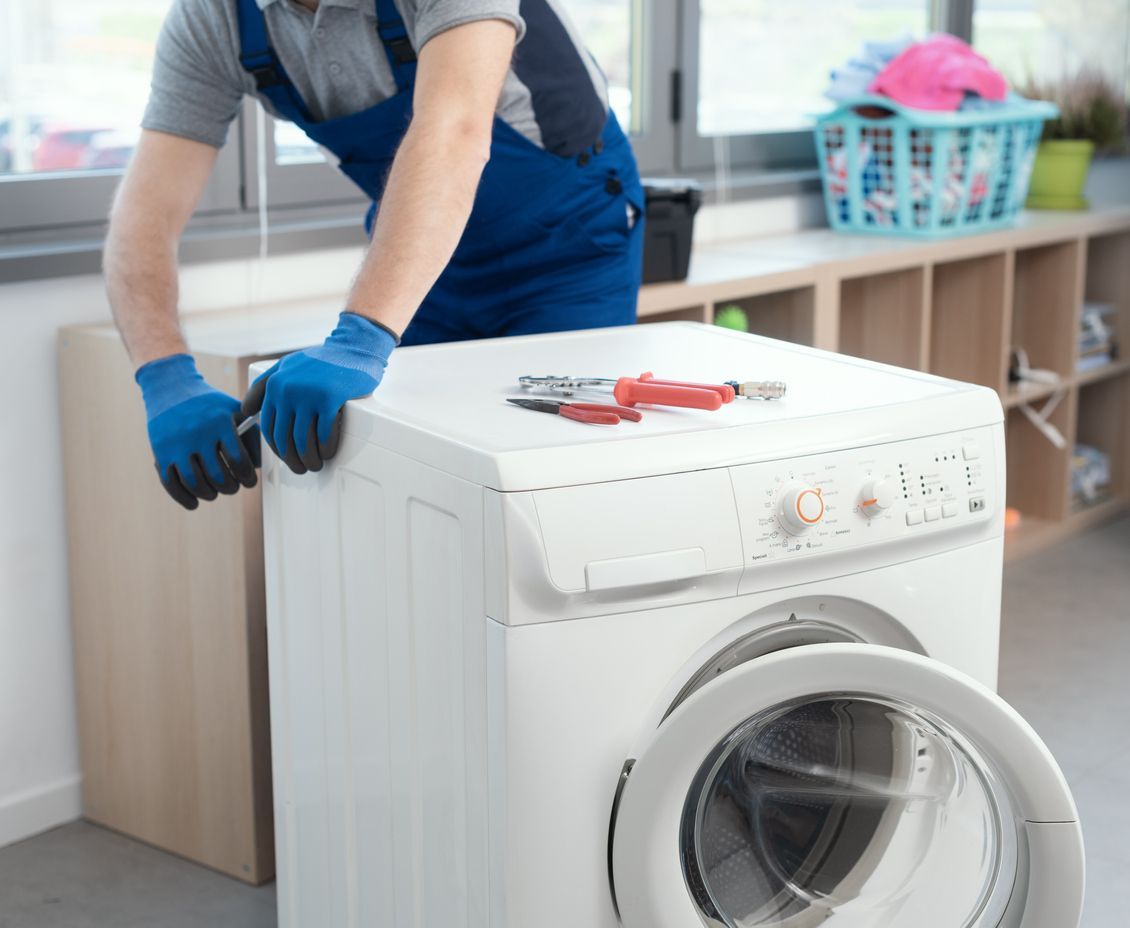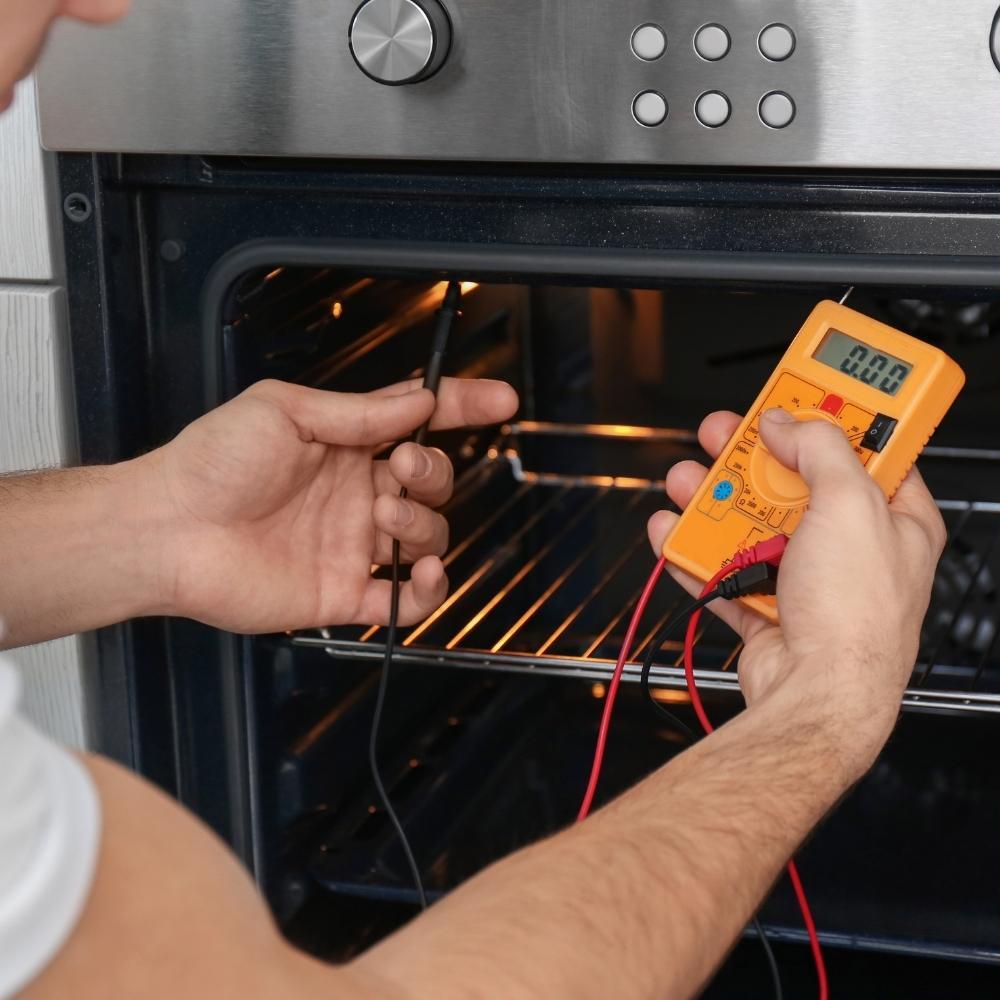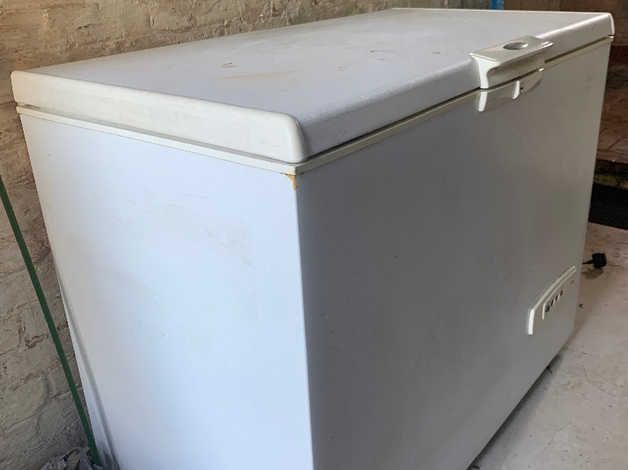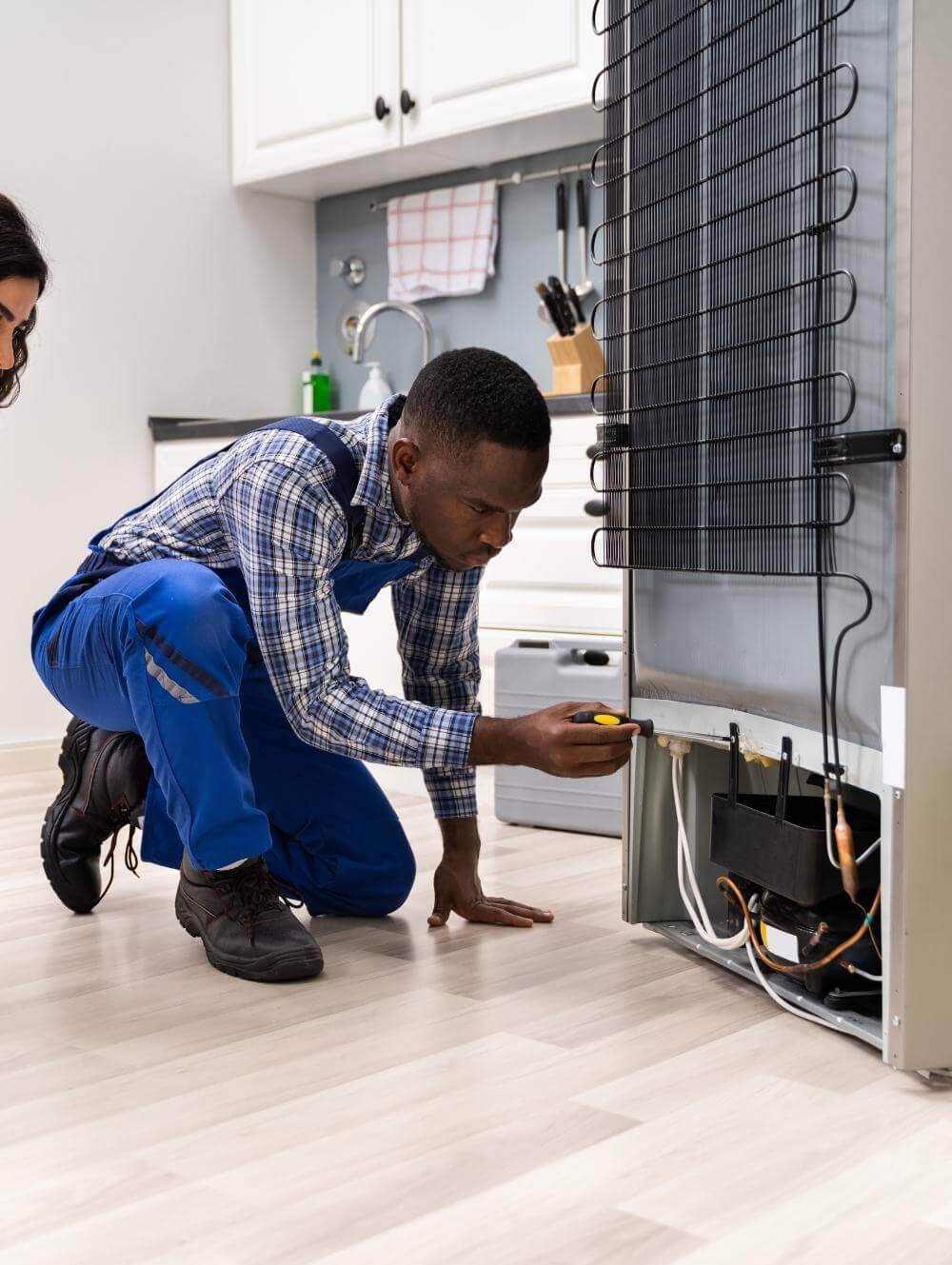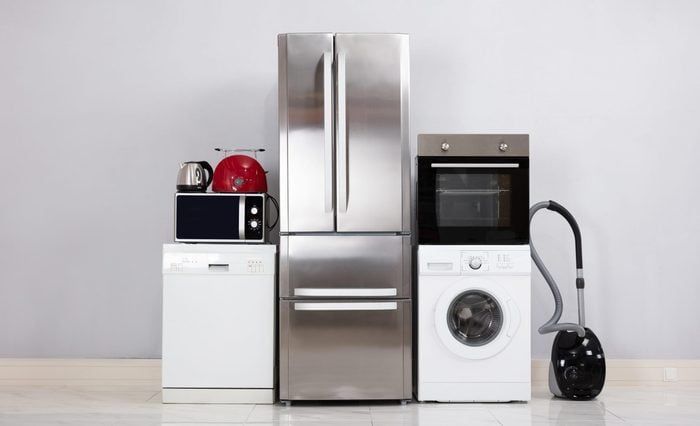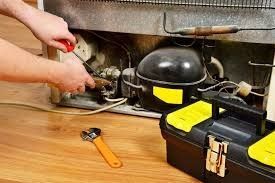Samsung Dryer Not Heating Up? Call the Experts at A+ Appliance Repair Services
Samsung Dryer Not Heating Up? Call the Experts at A+ Appliance Repair Services
Don’t let a simple fix turn into a big problem. Get your dryer working again with a quick call to our professional technicians.
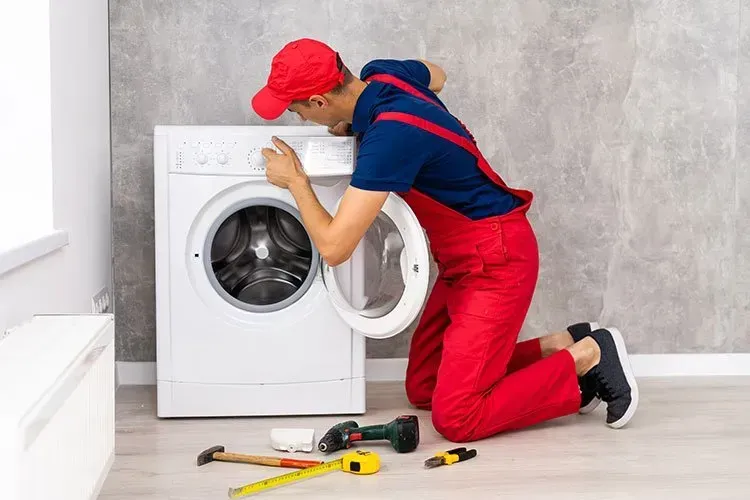
Your Samsung dryer isn’t heating up, and laundry day is quickly turning into a nightmare.
- It’s a common problem, and one that can usually be traced back to issues like a faulty heating element or blown thermal fuses. While these issues might seem minor, they can quickly escalate into major headaches if not handled properly.
Why is Your Samsung Dryer Not Heating Up?
When your dryer stops heating, it could be due to one or more of the following reasons:
- Heating Element Failure: The heating element is responsible for generating the heat in your dryer. Over time, it can wear out or break, leading to no heat.
- Thermal Fuse Issues: The thermal fuse is a safety device that prevents overheating. If it blows, it will cut power to the heating element, causing the dryer to stop producing heat.
- Thermostat Problems: Faulty thermostats can incorrectly regulate temperature, leading to insufficient or no heat.
- Power Supply Issues: A tripped circuit breaker or a malfunctioning power outlet can prevent your dryer from heating up.
- Ventilation Blockages: Blocked vents can cause the dryer to overheat and shut down the heating element to prevent damage.
Deeper Dive into the Issues
Heating Element Failure: The heating element is the heart of your dryer’s heat production. Over time, it can degrade due to constant heating and cooling cycles. When the element breaks, it’s unable to generate the necessary heat to dry your clothes. Testing and replacing the heating element requires technical expertise and the correct tools. Without these, you risk damaging the dryer or, worse, voiding the warranty.
Thermal Fuse Issues: Thermal fuses are essential safety components that prevent the dryer from overheating and causing a fire hazard. When the fuse blows, it cuts off the power to the heating element, stopping the dryer from producing heat. Identifying a blown fuse involves opening the dryer and using a multimeter to test continuity, a process best left to professionals to ensure it’s done correctly.
Thermostat Problems: The thermostat in your dryer controls the temperature. If it malfunctions, the dryer may not reach the required temperature to dry clothes properly, or it could cause the heating element to shut down prematurely. Diagnosing and replacing a faulty thermostat involves intricate knowledge of the dryer’s internal workings.
Power Supply Issues: Sometimes, the problem isn't with the dryer itself but with the power supply. A tripped circuit breaker or a faulty outlet can disrupt the flow of electricity to the dryer, preventing it from heating up. This issue can be tricky to diagnose without proper electrical knowledge, and it’s crucial to ensure safety when dealing with electrical components.
Ventilation Blockages: Proper ventilation is key to your dryer’s performance. Lint and debris can accumulate in the venting system over time, restricting airflow and causing the dryer to overheat. When this happens, the dryer’s built-in safety mechanisms may shut down the heating element to prevent a fire. Regular maintenance and cleaning of the vents are essential to prevent this issue.
The DIY Dilemma: Why You Should Think Twice
With the rise of DIY culture, it might be tempting to tackle dryer repairs on your own. However, while online guides and videos make it seem easy, the reality is that dryer repairs require a specific skill set and understanding of the appliance’s mechanics. Incorrectly diagnosing or repairing the issue could lead to further damage, increased repair costs, or even safety hazards. Moreover, many manufacturers, including Samsung, may void your warranty if an unqualified person attempts to repair the dryer. Save yourself the hassle and potential risks by calling in a professional from A+ Appliance Repair Services.
The A+ Appliance Repair Services Solution
At A+ Appliance Repair Services, we specialize in diagnosing and repairing Samsung dryers. Our team of experienced technicians undergoes rigorous training to stay updated with the latest appliance technologies, ensuring we provide top-notch service. Whether it’s a simple fuse replacement or a more complex issue with the heating element or thermostat, we have the expertise and tools to get the job done right the first time. We pride ourselves on our transparent pricing, fast response times, and commitment to customer satisfaction.
In addition to dryer repairs, we offer comprehensive Samsung appliance repair services. Samsung is renowned for its wide range of high-quality appliances, from refrigerators and stoves to dishwashers and washers. Despite their reputation for reliability, even the best appliances can encounter issues over time. When that happens, our Samsung appliance repair specialists are ready to restore your devices to peak performance.
Our service professionals are trained to repair all Samsung models, including fridges, stoves, ovens, dishwashers, washers, and dryers. Every appliance in your home serves a crucial purpose, and when one breaks down, it can disrupt your daily routine and even pose safety risks. For example, a faulty heating element in your Samsung oven could become a fire hazard if not addressed promptly.
We understand how busy life can get, and the last thing you need is the added stress of a malfunctioning appliance. That’s why we’re committed to providing fast, reliable Samsung appliance repair services. Whether your fridge isn’t cooling or your oven isn’t heating, our team is here to help. We guarantee the highest quality of service, ensuring your Samsung appliances are back to working order as quickly as possible.
A Story Many Homeowners Know Too Well
Imagine this: It’s a Saturday morning, and you’ve got a mountain of laundry to tackle. You load up your Samsung dryer, hit start, and... nothing. No heat. Panic sets in as you realize your dryer is on the fritz. But rather than trying to troubleshoot the problem yourself, you decide to call A+ Appliance Repair Services. Our technician arrives promptly, diagnoses a blown thermal fuse, and has it replaced in no time. By the afternoon, you’re back to your weekend routine, laundry included.
Let’s add another layer: Your neighbor had the same problem last month. They tried to fix it themselves, spent hours disassembling the dryer, only to end up with a bigger mess and a still-broken appliance. After finally calling a professional, they spent more than they would have if they’d called right away. Don’t make the same mistake—get it done right the first time with A+ Appliance Repair Services.
Why Timely Repairs Matter
Ignoring a heating issue with your dryer can lead to more than just inconvenience. A dryer that doesn’t heat properly not only fails to dry your clothes but also uses more energy, driving up your utility bills. Additionally, unresolved heating issues can put undue stress on other components of the dryer, leading to more extensive damage and costly repairs down the line. In the worst-case scenario, a malfunctioning dryer can become a fire hazard, especially if there are ventilation issues. Timely repairs are crucial to keeping your dryer safe, efficient, and effective.
Frequently Asked Questions
How Do I Schedule Samsung Repair Service?
Scheduling service with A+ Appliance Repair Services is simple. You can schedule service online for quality Samsung appliance repair. Our skilled service professionals provide prompt and reliable repairs to ensure your Samsung appliances are in optimal working condition.
Can Samsung Appliances Be Repaired?
Yes, Samsung appliances can typically be repaired. However, we strongly advise against attempting DIY appliance repair, as it can cause more damage or even break your machine. An experienced A+ Appliance Repair Services professional will fix many common problems, but the decision between repair vs. replacement depends on your specific appliance model, age, and issue.
How Long Do Samsung Appliances Last?
The lifespan of a Samsung appliance varies based on factors like the type of appliance, usage, and yearly maintenance. For instance, a well-maintained Samsung refrigerator can last 10 to 15 years.
Are Samsung Appliances High Quality?
Samsung appliances are generally of good quality, offering a range of innovative features and modern designs. However, as with any brand, the perception of quality often depends on the specific appliance model and your individual experience. We recommend researching and considering customer reviews for the specific product you’re considering.
Call A+ Appliance Repair Services Today!
Don’t let a malfunctioning dryer disrupt your life. If your Samsung dryer isn’t heating up, call A+ Appliance Repair Services today for a free consultation. Our expert technicians will have your dryer back to perfect working order in no time.
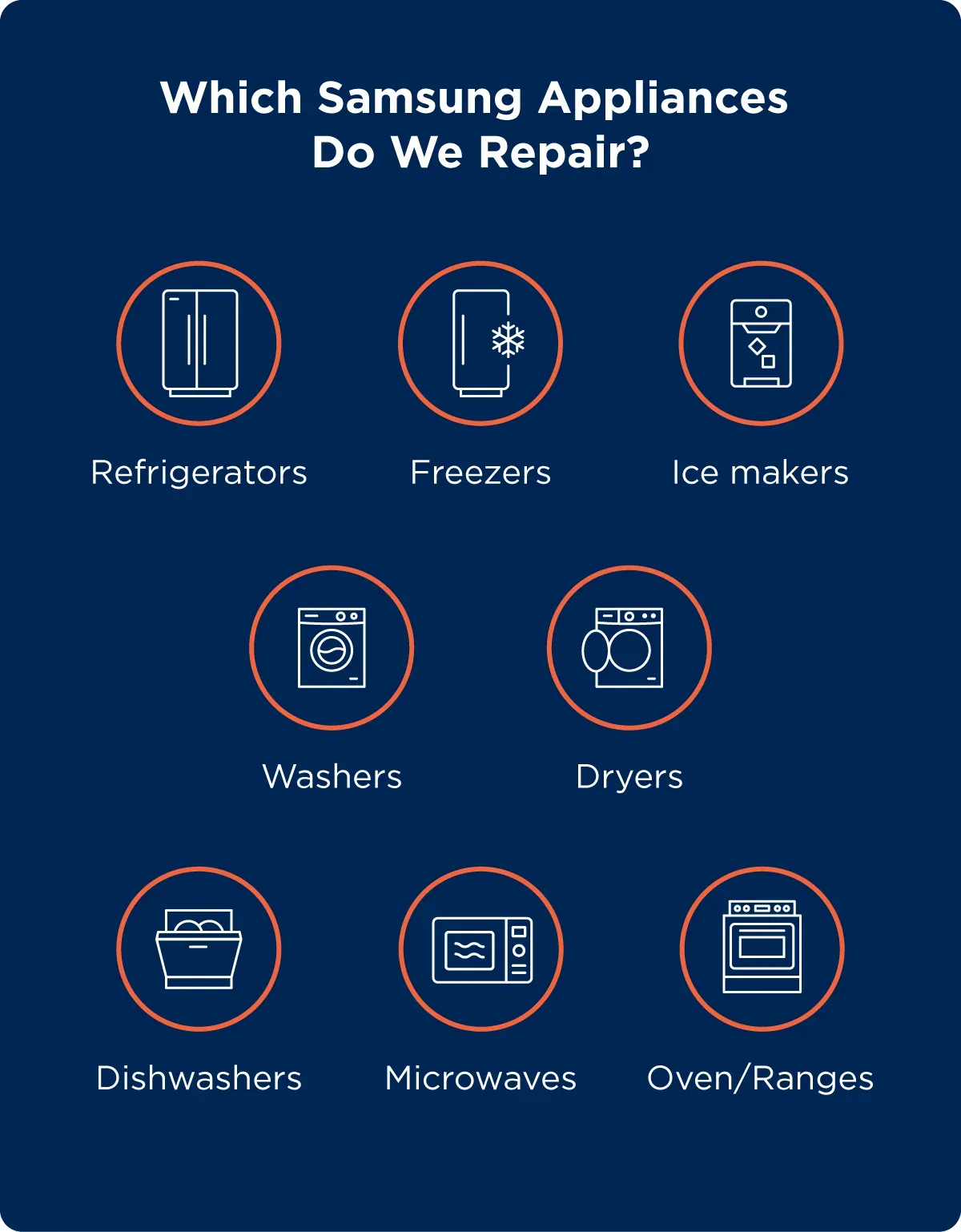
TAGLINE
Testimonials
These folks are the best! My oven stopped heating, and I was worried about the cost. They were quick, explained everything, and even gave me some handy tips. Five stars for sure.
James Faber
Jan 12, 2024
Couldn’t be happier with the service. My dishwasher was leaking, and they fixed it up perfectly. The whole process was smooth, and the tech was really nice. Highly recommend them!!
Jane Wilson
June 30, 2024
Wow, these guys are amazing! My fridge broke down right before a big family dinner, and they saved the day. The tech was super friendly and fixed it in no time. Definitely my go-to for any appliance issues!
Jeremy Johnson
July 10, 2024
Had a great experience with this company. My washing machine was acting up, and they came out the same day I called. The technician knew exactly what to do and got it working again. Super happy with the service.
Michelle Brown
June 25, 2024
